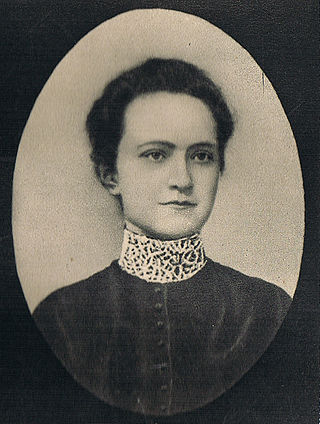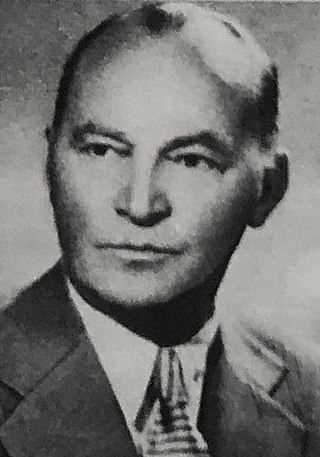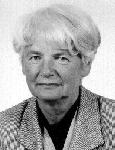
Zofia Kossak-Szczucka was a Polish writer and World War II resistance fighter. She co-founded two wartime Polish organizations: Front for the Rebirth of Poland and Żegota, set up to assist Polish Jews to escape the Holocaust. In 1943, she was arrested by the Germans and sent to Auschwitz concentration camp, but survived the war.

Żegota was the Polish Council to Aid Jews with the Government Delegation for Poland, an underground Polish resistance organization, and part of the Polish Underground State, active 1942–45 in German-occupied Poland. Żegota was the successor institution to the Provisional Committee to Aid Jews and was established specifically to save Jews. Poland was the only country in German-occupied Europe where such a government-established and -supported underground organization existed.

Władysław Bartoszewski was a Polish politician, social activist, journalist, writer and historian. A former Auschwitz concentration camp prisoner, he was a World War II resistance fighter as part of the Polish underground and participated in the Warsaw Uprising. After the war he was persecuted and imprisoned by the communist Polish People's Republic due to his membership in the Home Army and opposition activity.

Irena Stanisława Sendler (née Krzyżanowska), also referred to as Irena Sendlerowa in Poland, nom de guerreJolanta, was a Polish humanitarian, social worker, and nurse who served in the Polish Underground Resistance during World War II in German-occupied Warsaw. From October 1943 she was head of the children's section of Żegota, the Polish Council to Aid Jews.

Wojciech Horacy Kossak was a Polish painter and member of the celebrated Kossak family of artists and writers. He was the son of painter Juliusz Kossak, and twin brother of freedom fighter Tadeusz Kossak, and the father of two highly talented literary daughters, Maria Pawlikowska-Jasnorzewska and Magdalena Samozwaniec and of a painter son, Jerzy Kossak.

Juliusz Fortunat Kossak was a Polish historical painter and master illustrator who specialized in battle scenes, military portraits and horses. He was the progenitor of an artistic family that spanned four generations, father of painter Wojciech Kossak and grandfather of painter Jerzy Kossak.

In Poland, the resistance movement during World War II was led by the Home Army. The Polish resistance is notable among others for disrupting German supply lines to the Eastern Front, and providing intelligence reports to the British intelligence agencies. It was a part of the Polish Underground State.

The issue of why the Allies did not act on early reports of atrocities in the Auschwitz concentration camp by destroying it or its railways by air during World War II has been a subject of controversy since the late 1970s. Brought to public attention by a 1978 article from historian David Wyman, it has been described by Michael Berenbaum as "a moral question emblematic of the Allied response to the plight of the Jews during the Holocaust", and whether or not the Allies had the requisite knowledge and the technical capability to act continues to be explored by historians. The U.S. government followed the military's strong advice to always keep the defeat of Germany the paramount objective, and refused to tolerate outside civilian advice regarding alternative military operations. No major American Jewish organizations recommended bombing.
Irene Tomaszewski is a Canadian writer, editor and translator of Polish descent living in Montreal, Canada.

The Provisional Committee to Aid Jews was founded on September 27, 1942, by Zofia Kossak-Szczucka and Wanda Krahelska-Filipowicz. The founding body consisted of Polish democratic Catholic activists associated with the Front Odrodzenia Polski, Polska Organizacja Demokratyczna, Związek Syndykalistów Polskich and PPS-WRN. The codename for the organization was "Konrad Żegota Committee" and the same codename was retained for the direct successor, the underground Council to Aid Jews.

Wanda Krahelska-Filipowicz, code name "Alinka" or "Alicja", was a leading figure in Warsaw’s underground resistance movement throughout the years of German occupation during World War II in Poland, co-founder of Żegota. As the well-connected wife of a former ambassador to Washington, she used her contacts with both the military and political leadership of the Polish Underground to materially influence the underground's policy of aiding Poland's Jewish population during the war.

Ferdynand Marek Arczyński, cryptonym "Marek" or "Lukowski", was one of the founding members of an underground organization Żegota in German-occupied Poland, from 1942 to 1945. Żegota's express purpose was to help the country's Jews survive the Holocaust; find places of safety for them, and provide relief payments to thousands of families. Poland was the only country in occupied Europe with such an organization during World War II.

Irena Adamowicz, was a Polish-born scout leader and a resistance member during World War II. She was a courier for the underground Home Army. In 1985, Adamowicz was posthumously bestowed the title of the Righteous Among the Nations by Yad Vashem in Jerusalem for her activities involving providing information to a number of Jewish ghettos in occupied Poland.

Polish Jews were the primary victims of the Nazi Germany-organized Holocaust in Poland. Throughout the German occupation of Poland, Jews were rescued from the Holocaust by Polish people, at risk to their lives and the lives of their families. According to Yad Vashem, Israel's official memorial to the victims of the Holocaust, Poles were, by nationality, the most numerous persons identified as rescuing Jews during the Holocaust. By January 2022, 7,232 people in Poland have been recognized by the State of Israel as Righteous among the Nations.

Witold Bieńkowski, code-name Wencki (1906–1965), was a Polish politician, publicist and leader of the Catholic underground organization called Front for a Reborn Poland during World War II, as well as member of the Provisional Committee to Aid Jews, Żegota, and a permanent representative of the Delegation for Poland of the Polish Government-in-Exile.
Anna Szatkowska was a World War II member of the Polish Home Army which she joined at the age of 16 to help in liberating Warsaw from German occupation. She served as first-aider. Sixty years later, she described her experiences in a book, La Maison brulée.

Serbia was a prison for women, located in Warsaw at 26 Dzielnej Street adjacent to the Pawiak prison. It was built by the Russian occupiers of Poland.

Zofia Kuratowska was a Polish doctor, politician, and diplomat of Jewish descent. Her father, Kazimierz Kuratowski, was a mathematician who worked at the Warsaw School of Mathematics. Kuratowska took part in the Warsaw Uprising during World War II. After the war ended, she graduated from the Medical University of Warsaw with a specialty in hematology, and became a doctor. In the 1980s she joined the Solidarity movement and became one of their healthcare workers.
The Easter Pogrom was a series of assaults on the Jewish populations of Warsaw and Kraków, Poland, between 22 and 30 March 1940, while Poland was occupied by the Germans in World War II.

Protest! was a clandestine leaflet issued in 1942 as a protest by Polish Catholics against the mass murder of Jews in German-occupied Poland.
















